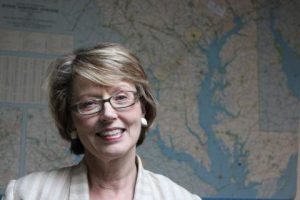Maryland Historical Society hosts talk on contentious elections
BALTIMORE, September 7, 2016 – November’s presidential election will be the 58th in American history. While all presidential campaigns and elections are significant, political observers still discuss a few that were characterized by extraordinary circumstances: incivility, arbitration by the U.S. House, Electoral College surprises, multiple parties and candidates, civil unrest and so forth. On Thursday, September 22 at 6pm, join moderator Sheilah Kast and The Maryland Historical Society’s panel of experts as they discuss four such contentious elections that reverberate today and their impacts on American political history: 1824 (John Quincy Adams/ Jackson/Clay/Crawford), 1860 (Lincoln/Douglas/Breckenridge/Bell), 1876 (Hayes/Tilden) and 1912 (Wilson/Roosevelt/Taft). The issues that arose in these earlier contests provide a fascinating lens through which to view the coming election in November.
About the Elections
The United States presidential election of 1824 was the only election to be decided by the US House of Representatives because no candidate received a majority of the Electoral College vote. Although Andrew Jackson received a plurality of the vote, John Quincy Adams ended up being elected, causing a great divide. The issue of slavery animated the 1860 election (Lincoln/Douglas/Breckenridge/Bell) and some Southern states seceded before Abraham Lincoln was inaugurated. The election of 1876 is known as the “Stolen Election” (pictured above) as Samuel Tilden won the popular vote and more electoral votes than Rutherford B. Hayes, with 20 electoral votes nebulously declared ‘illegal’ and thus uncommitted. Finally, the 1912 election (Wilson/Taft/Roosevelt) is known as the last election wherein a former President (Roosevelt) ran for the White House without being nominated as either a Democrat or Republican, but rather as part of a progressive third party, the Bull Moose Party.
About Sheilah Kast, the Moderator

Sheilah Kast is the host of Midday on WYPR. Originally, she hosted the DuPont-Columbia University award-winning Maryland Morning with Sheilah Kast from 2006-2015. She began her career at The Washington Star, where she covered the Maryland and Virginia legislatures, utilities, energy and taxes, as well as financial and banking regulation. She learned the craft of broadcasting at ABC News; as a Washington correspondent for fifteen years, she covered the White House, Congress, and the 1991 Moscow coup that signaled the end of the Soviet empire.
About the Panelists:
Jean H. Baker, Ph.D., is Professor Emerita of History at Goucher College, and author of numerous books, including The Politics of Continuity: Maryland Political Parties from 1858-1870, Ambivalent Americans: The Know Nothing Party in Maryland and two forthcoming works: a new edition of Maryland: A History of Its People and a biography of Benjamin Henry Latrobe. (1824)
Charles W. Mitchell, M.A., is author of Maryland Voices of the Civil War, Travels Through American History in the Mid-Atlantic and articles on Civil War-era politics and slavery in Maryland. (1860)
Elizabeth Kelly Gray, Ph.D., is an Associate Professor and Assistant Chair in the Department of History at Towson University, where her focus is on 19th-century America. She is writing a book about drug addiction in 19th-century America. (1876)
Alex Pavuk, Ph.D., is an Assistant Professor of History at Morgan State University who focuses on American intellectual and cultural history, science and religion, and American religious history. (1912)
This event is FREE for MdHS members; $10/nonmembers, with a Reception to follow. For more details and to register, visit this link.
About The Maryland Historical Society
Founded in 1844, The Maryland Historical Society Museum and Library occupies an entire city block in the Mount Vernon district of Baltimore. The society’s mission is to “collect, preserve, and interpret the objects and materials that reflect Maryland’s diverse cultural heritage.” The Society is home to the original manuscript of the Star-Spangled Banner and publishes a quarterly titled “Maryland Historical Magazine.”
For more details, contact Marketing Director Laura Rodini at [email protected] or by phone: 410-685-3750 ext. 322.
The Maryland Historical Society | | 201 W. Monument Street, Baltimore MD 21201 | http://www.mdhs.org


Note that Maryland has enacted the National Popular Vote bill. When it goes into effect it will guarantee the presidency to the candidate who receives the most popular votes in the country.
Every vote, everywhere, for every candidate, would be politically relevant and equal in every presidential election.
No more distorting and divisive red and blue state maps of pre-determined outcomes.
No more handful of ‘battleground’ states (where the two major political parties happen to have similar levels of support among voters) where voters and policies are more important than those of the voters in 38+ predictable states, like Maryland, that have just been ‘spectators’ and ignored after the conventions.
The bill would take effect when enacted by states with a majority of the electoral votes—270 of 538.
All of the presidential electors from the enacting states will be supporters of the presidential candidate receiving the most popular votes in all 50 states (and DC)—thereby guaranteeing that candidate with an Electoral College majority.
The bill has passed 34 state legislative chambers in 23 rural, small, medium, large, red, blue, and purple states with 261 electoral votes.
The bill has been enacted by 11 small, medium, and large jurisdictions with 165 electoral votes – 61% of the 270 necessary to go into effect.
National Popular Vote